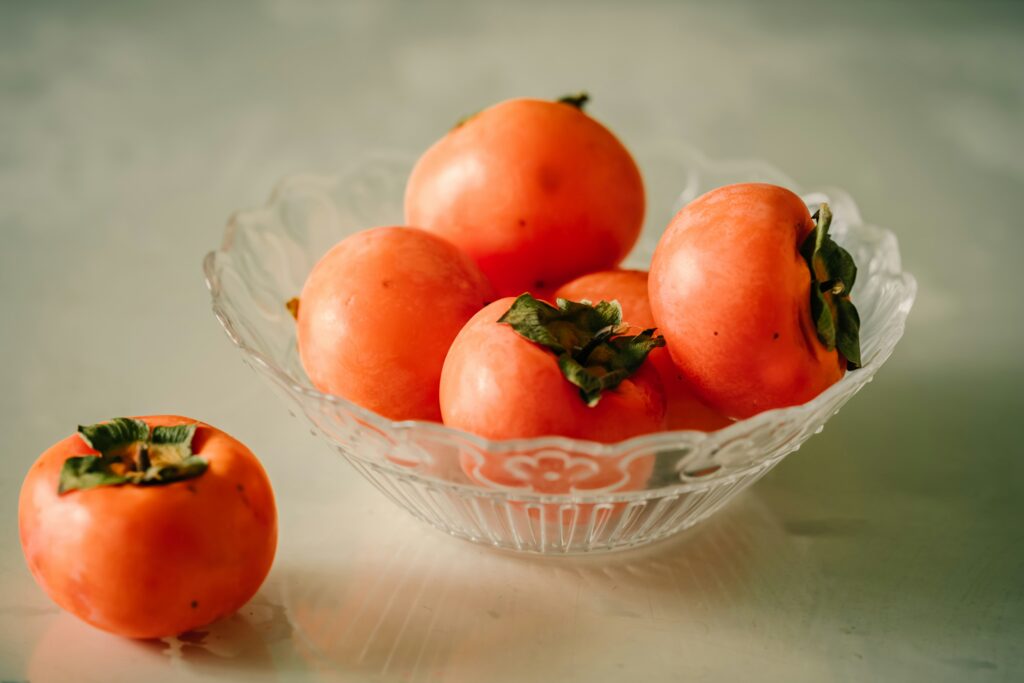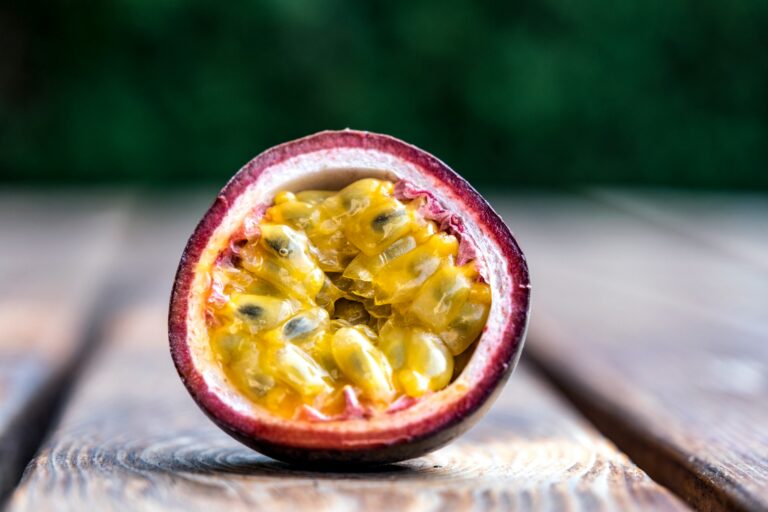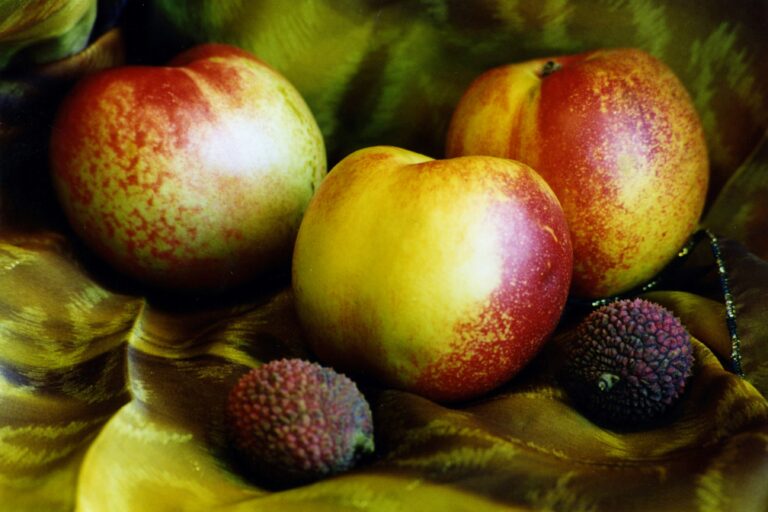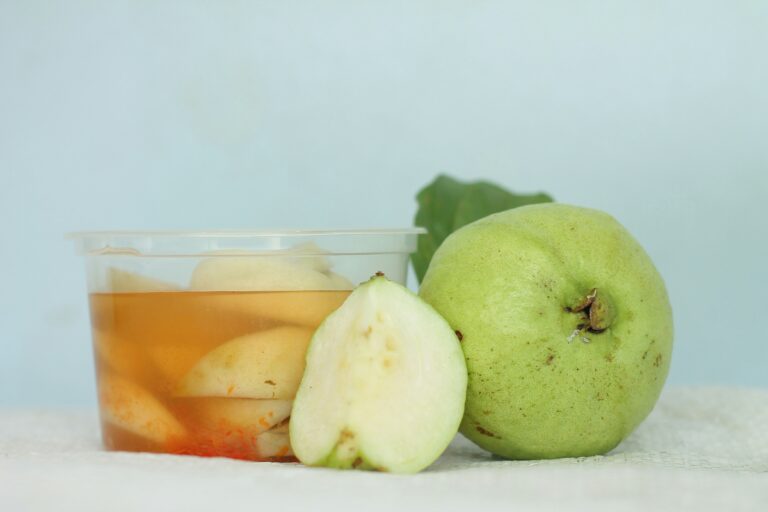The scientific name of the persimmon fruit is Diospyros kaki. Persimmon is a deciduous tree with a rounded oval crown that grows to 35 to 60 feet tall. It belongs to the family Ebenaceae. The local name of persimmon is Japanese phal or amar phal and lukum. Persimmon fruit is native to North East India, China, and northern Indochina. It originated in China. China is the largest producer of persimmon fruits. About 77% of the total production of persimmon fruit is cultivated in China.
Color: The color of persimmon fruit ranges from glossy light yellow-orange to dark red-orange.
Size: The persimmon fruit is about 1 to 12 inches in diameter. The tree grows about 10 to 12 meters tall.|
Shape: The shape of the persimmon fruit is like a tomato. It is spherical, depending on the size.
Flavor: The flavor of persimmon fruit is delicately sweet and mild in taste. They are sweet when ripe.
Nutrients
100 grams include the following beneficial nutrients such as
- Calories 127
- Total fat 0.4 g
- Sodium 1 mg
- Potassium 310 mg
- Total Carbohydrate 34 g
- Protein 0.8 g
- Vitamin C 110% of the total value
- Calcium 2% of the total value
| How to grow persimmon fruit? |
Health Benefits of Persimmon
Persimmons are rich in antioxidants and important nutrients such as vitamin A and fiber. They have also been linked to several potential health benefits and can be enjoyed in a variety of dishes.
Rich with nutrients
Persimmons are a good source of riboflavin, folate, thiamin, magnesium, and phosphorus. These colorful fruits are loaded with fiber, low in calories, and a good weight-loss-friendly food.
Good source of powerful antioxidants
Persimmons contain beneficial plant compounds that have antioxidant benefits for the human body. Antioxidants help to prevent cell damage by counteracting oxidative stress in a process triggered by unstable molecules called free radicals. Consuming antioxidant-rich foods like persimmon can help fight oxidative stress and may decrease the risk of certain chronic diseases.
Benefit heart health
Heart disease is the leading cause of death. The most powerful combination of nutrients found in persimmons makes them an excellent choice for boosting heart health. A diet high in flavonoid-rich food can support heart health by lowering blood pressure, reducing “bad” low-density lipoprotein, and reducing inflammation.
Helps in reducing inflammation
Choosing foods that are high in anti-inflammatory compounds can help reduce inflammation and lower the risk. Persimmon is an excellent source of potent antioxidants, Vitamin C. One persimmon contains 14% of the recommended daily intake. Vitamin C helps to protect cells from damage caused by free radicals and combat inflammation in the body.
Aids healthy vision
Persimmon provides a lot of Vitamin A and antioxidants that are critical for eye health. Vitamin A supports the functioning of the membrane and cornea. It is an essential component of rhodopsin, a protein necessary for healthy vision. Persimmons contain lutein and zeaxanthin, which are carotenoid antioxidants that also promote healthy vision.
Side Effects of Persimmon
Taking the persimmon in the diet than the normal amount may lead to a condition that will be chronic condition. They also upset the stomach sometimes due to the high tannin content.
FAQ’s
What is special about persimmons?
Persimmons are notable for their sweet, honey-like flavor and vibrant orange or red coloring. They are also a good source of vitamins and minerals, particularly vitamin A, vitamin C, and potassium, as well as dietary fiber and antioxidants. Persimmons are also known for their use in traditional Chinese medicine and their cultural significance in Japan, where they are associated with luck and prosperity.
What is persimmon fruit good for?
Persimmon fruit is beneficial for promoting healthy skin, boosting immunity, and supporting heart health. They are a good source of vitamins A and C, as well as fiber, which aids in digestion and can help with weight management.
Is persimmon hot or cold for the body?
In Traditional Chinese Medicine (TCM), persimmons are considered a “cold” food. This means they are believed to have a cooling effect on the body, which can be helpful for certain conditions.






